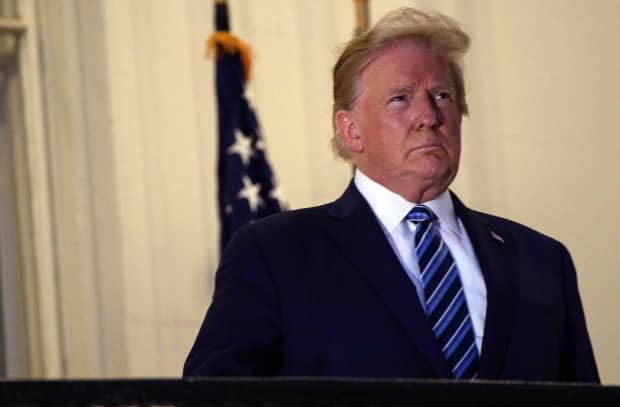This post was originally published on this site

US President Donald Trump looks out from the Truman Balcony upon his return to the White House from Walter Reed Medical Center on Monday.
Long-struggling talks to get a second major coronavirus economic aid package through the U.S. Congress looked to have failed Tuesday, at least until after the November elections, after President Donald Trump said he was withdrawing from negotiations.
In a series of tweets a little more than an hour before U.S stock markets were to close, Trump accused House Speaker Nancy Pelosi of not negotiating in good faith and Democrats of wanting too much money for the package.
“I am rejecting their … request, and looking to the future of our Country. I have instructed my representatives to stop negotiating until after the election when, immediately after I win, we will pass a major Stimulus Bill that focuses on hardworking Americans and Small Business,” he wrote.
Instead, Trump said he was instructing Senate Majority Leader Mitch McConnell to focus instead on getting Amy Coney Barrett, Trump’s pick to the U.S. Supreme Court, confirmed quickly.
The move had an immediate impact on Wall Street, where traders had held out hope for a deal, despite weeks of on-again, off-again talks in Washington. The Dow Jones Industrial Average fell to session lows before bouncing back slightly DJIA, -1.33%.
Read more: Dow turns sharply lower as Trump calls end to fiscal stimulus talks until after election
Pelosi accused Trump of backing out because he would not budge on tax provisions Democrats sought and didn’t want more direct payments to households unless his name was on the checks.
“Today, once again, President Trump showed his true colors: putting himself first at the expense of the country, with the full complicity of the GOP Members of Congress,” she said in a statement.
Earlier in the day, Federal Reserve Chairman Jerome Powell had again urged Congress to approve more stimulus money soon, warning the failure to do so could lead to “tragic” economic consequences.
Read more: Powell says U.S. economy needs more fiscal support
“Too little support would lead to a weak recovery, creating unnecessary hardship for households and businesses,” Powell said in a speech to the National Association for Business Economics.

